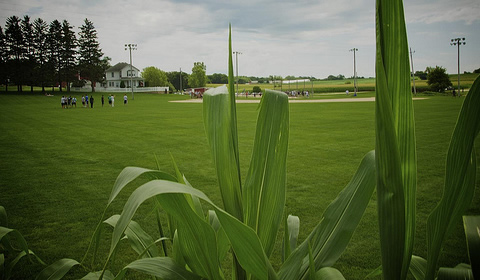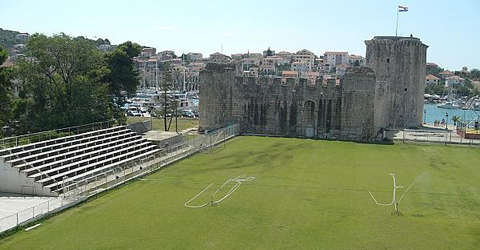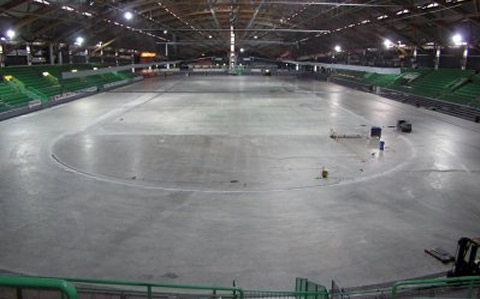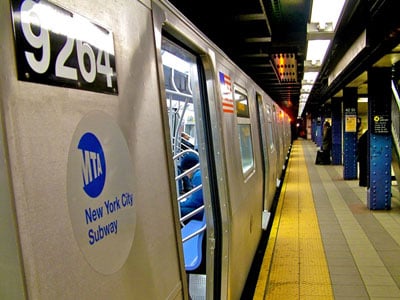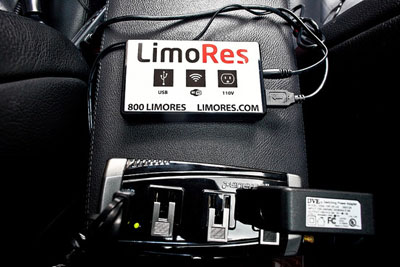 |
Are these outfits offensive?
|
It seems controversy and
Soulard Oktoberfest go together like beer and bratwurst.
Last year, the festival -- which takes place the first weekend in October and is part of the annual global celebration of German heritage and culture -- was
nearly booted from Soulard Market Park when a handful of market vendors and nearby homeowners complained that drunken revelers were peeing in public and tearing up flower beds.
This year Oktoberfest moves to Lyon Park, near the Budweiser Brewery and away from the neighborhood's residential areas, so noise and rowdy behavior won't be an issue.
But this time around, a kerfuffle is being caused by advertisements for the festival that feature a quartet of comely beer-toting women sporting traditional German folk costumes -- and massive amounts of cleavage.
The ads (see images below) depict four waitresses from festival-sponsor Johnny's Restaurant & Bar in Soulard. They are similar to ones that ran last year on billboards near freeways and major streets in the city.
John McKinstry, the founder of the seven-year-old festival, says his organization had a deal with Metro advertising contractor
JCDecaux for the ads to appear on bus shelters in St. Louis city and county. The company handles advertising sales and installation for 662 bus stops in the region, according to
its website.
McKinstry says he asked JCDecaux if the content of the ads -- which cost $11,200, about ten percent of Oktoberfest's total publicity budget -- was going to be an issue.
"I did say, 'You've seen our girls. Because of the nature of some of the pictures, you need to be sure and run this by whomever,'" McKinstry recalls. "They said 'We don't really have a problem with it, but just so you don't have the expense of printing all this up, we'll run it past [Metro] just to be sure.'"
Last week the arrangement fell through when Metro decided that the ads were too racy for their tastes. McKinstry says that in attempt to appease Metro, Oktoberfest created a new poster -- one that's slightly more modest than the original -- but the transit agency wouldn't change their minds.
McKinstry provided before and after pictures. Here's the original:
And here is the second one, which looks nearly identical to the original except blurry and with some cleavage edited out with Photoshop.
"It was a total runaround," McKinstry complains. "I heard back from [JCDecaux] and they said '[Metro] doesn't want any of the girls up at all in the posters. I was livid. Nobody would give me any answers. I want to know who sets the policy. We can't put the posters up because there's some faceless bureaucrat out there."
JCDecaux did not return a call seeking comment for this story.
Reached by phone yesterday afternoon,
Janet Jennewein, director of sales and marketing at Metro, confirmed that the Oktoberfest account was indeed canceled by her agency. She declined to comment further, except to say that Metro has a written policy that spells out whether advertising content is suitable for the agency's bus shelters.
Metro spokeswoman
Dianne Williams provided a list of Metro's (click for .pdf)
"Advertising Standards and Guidelines." Williams did not respond to an email asking how the Oktoberfest ads broke the rules.
One passage prohibits anything that "contains material which is likely to offend, discomfort, or annoy Metro customers, or make them feel unwelcome, unsafe, or uncomfortable." Another guideline bans anything that "fosters sexual, racial, religious or other offensive stereotypes," which these posters would certainly seem to do -- if sexy stein-wielding frauleins could somehow be considered offensive.
McKinstry, meanwhile, is left wondering how an agency that is struggling to pay its bills can turn down revenue from a local, not-for-profit group like Oktoberfest. After all, the posters will still run on billboards in the city, and in several local publications, including (full disclosure)
Riverfront Times.
According to
Metro's website, ticket sales only account for about 20 percent of its operating costs -- the rest comes from taxpayer dollars and other sources, such as advertising at bus shelters.
"The travesty in my mind," McKinstry says, "is that Metro is already having a hard time making ends meet. We were willing to spend $11,200 for posters that aren't as revealing as the billboards we already have. We were spending money in the city. Now we're going to spend it somewhere else."










 Photo by
Photo by 

















